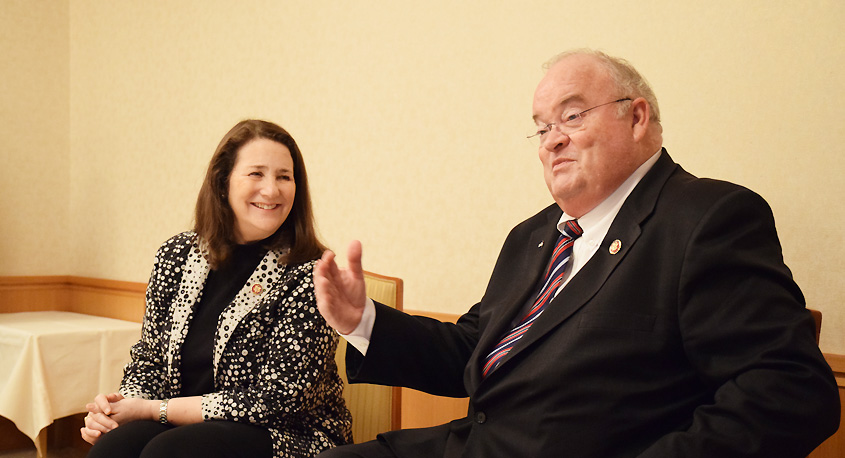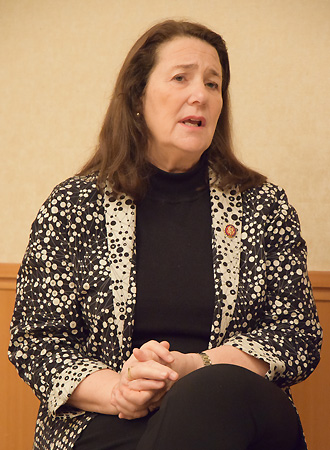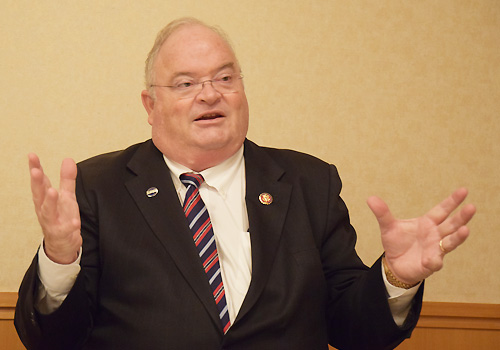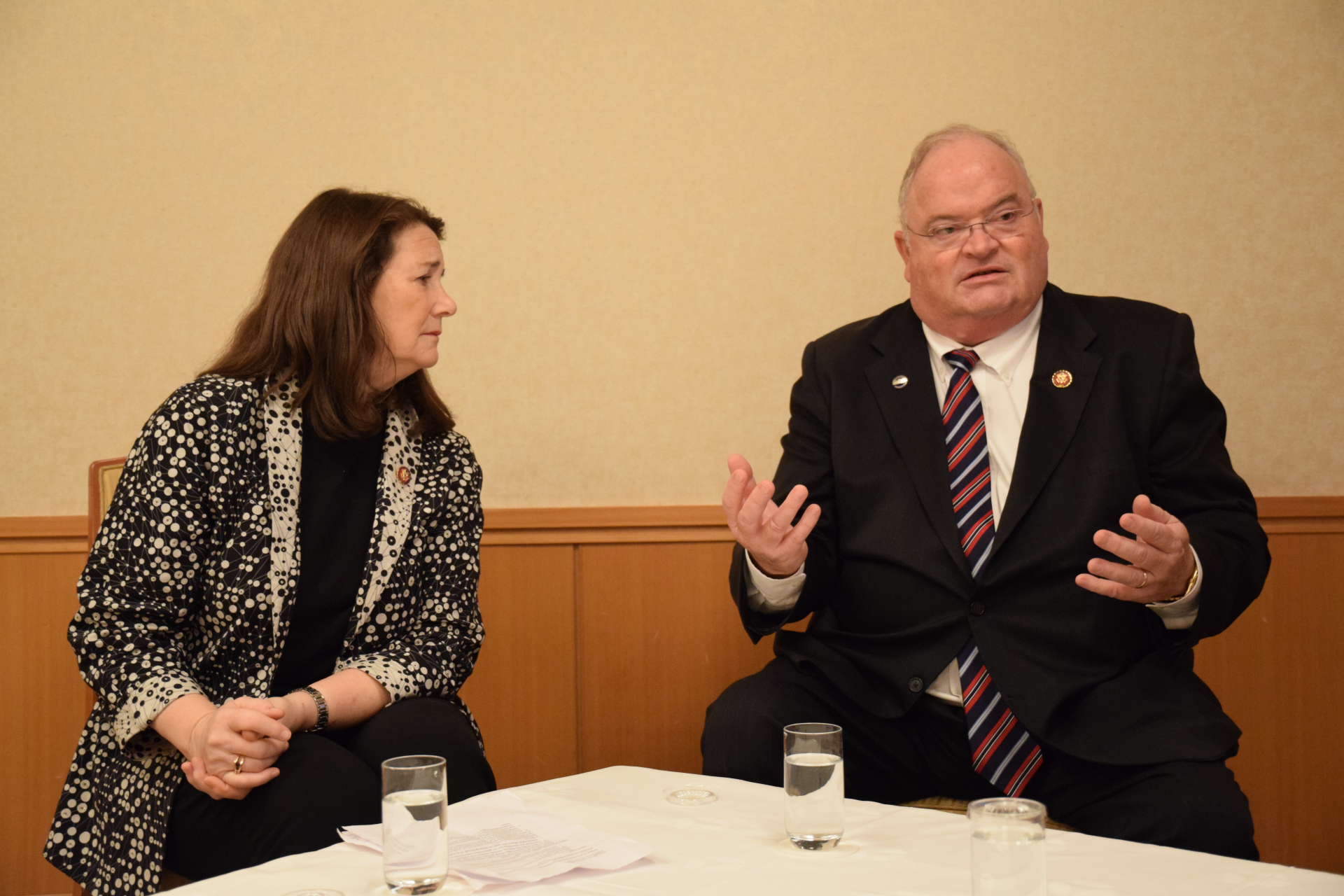There are many pressing security concerns in the region as well, including issues with North Korea and China. What do you see as the primary challenges that need to be focused on by the U.S.?*
Representative Long: From my perspective, when we were here two years ago when Ambassador Haggerty had just been sworn in, at the time North Korea was firing rockets overhead across Japan. Everyone's goal – the Japanese and the Americans – is to denuclearize North Korea. But guess what, that's not Kim Jong Un's goal, that wasn't his father's goal, and that wasn't his grandfather's goal. We tried to work with Kim Jong Il, Kim Jong Un, all three of them to virtually no success. At the end of the day, North Korea ended up with nukes and they ended up with ballistic missiles, and they were testing their missiles. President Trump has taken the approach of talking to the guy, and they're meeting again in Hanoi coming up pretty soon. I think that if you keep doing the same thing over and over again and it doesn't work, then maybe you want to think about doing something else. I think that's what this president has done, and there hasn't been a missile fired in over a year now.
Representative DeGette: Unfortunately, this is a place where we will disagree. There was recently a report that came out that said that even though President Trump had talked to North Korea and Kim Jong Un had made all of these assurances of actions he was going to take, he's now developing another site. The results are unclear aside from the fact that we don't have missiles sailing over Japan. One issue that we learned today that I hadn't focused on before is the concern of the Japanese that if we enter into some kind of an agreement with North Korea on ICBMs, what will that do to short and mid-range missiles? I think that's an important piece of information and something we should be concerned about in the administration. Because Billy is the Republican co-chair, I'm tasking him with taking that information back to the administration.
*Note: This interview was conducted in February 2019, just prior to the U.S.-North Korea summit meeting in Vietnam and before North Korea resumed missile tests in May 2019.
Related link:
“The importance of strong relationship with Japan” by Representative Long



